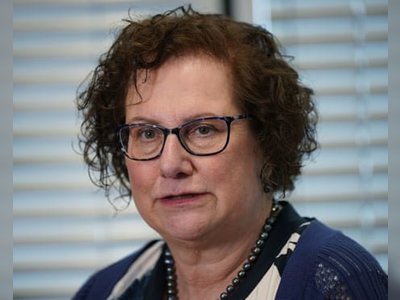
Singapore start-up Zenyum promises straighter teeth at affordable prices with dental app
For years, Rueban Kumar wanted to fix his misaligned teeth, but found metal braces too much of a hassle. Clear aligners from brands such as Invisalign, which are virtually invisible when worn, cost up to US$7,000, which was outside his budget.
So when he came across Zenyum, a Singapore-based start-up promising straighter teeth with clear aligners for just a third of the cost, Kumar decided to give it a try.
“When I signed up, Zenyum was still pretty new and I had my reservations,” said the 27 year-old, who works as an office administrator in Singapore. “But the staff were forthcoming and open … I was very happy with the service.”
Within six months, Kumar completed his treatment and now has the straight teeth he always wanted. Kumar is part of the demographic that clear aligner start-ups such as Zenyum are hoping to target – consumers who want to make cosmetic corrections to their teeth, but are unwilling to fork out large sums of money to do so.
Zenyum is one of many companies globally hoping to disrupt the multibillion-dollar orthodontics market by offering clear aligners at a third of the cost of traditional brands on the market, with fewer dentist visits.
The company is currently focusing on serving the Asia market, and operates in Singapore, Malaysia, Thailand and Hong Kong. In Hong Kong, Zenyum’s treatment costs HK$13,800 (US$1,762), compared to market leader Invisalign, which can cost more than HK$35,000.
“There are a lot of people who want to use clear aligners but for them, the existing options are simply too expensive … it’s a luxury product that some people cannot afford,” said Julian Artopé, chief executive of Zenyum. “We’re opening up a new segment of customers in the orthodontics market … who don’t want to go back to traditional braces.”
Having clear aligners produced within Southeast Asia, as well as Zenyum’s ability to remotely monitor how a customer’s teeth are moving via an app, are important factors that help to bring down the overall cost of treatment compared to traditional players, according to Artopé.
Instead of seeing a dentist every month, Zenyum customers will typically see their orthodontist at the beginning of the treatment process, to take an X-ray and a 3D scan that helps create a customised plan of how their teeth will move over the course of the six-to-nine months. Customers also see their orthodontists at the end of treatment.
In between, they are required to regularly upload photos of their teeth to the Zenyum app, so that a professional can check that their teeth are moving according to plan.
This mix of teledentistry – or remote dental care – and orthodontist visits sets Zenyum apart from some of its peers. In the US, for example, customers of a similar company called SmileDirectClub may not see a health care professional at all.
They simply create a 3D model of their teeth for the aligners by administering a mailed impression kit on their own, without getting medical advice on whether they have underlying issues with their teeth that may make them an unsuitable candidate.
“You sometimes see these business models where a customer never sees a dentist, and we think that it’s just plain wrong,” said Artopé. “If you don’t take X-rays to check for conditions you can’t see, bad things could happen, you could lose teeth.
“For us it’s important that a [professional] is involved. The app is a means to increase efficiency, but you still have to see a dentist in person.”
Zenyum also pre-screens and selects candidates for its treatment. It only treats adults over 18 years of age, and only those who do not have serious misalignment issues that may cause complications during treatment. This ensures that the company has a higher treatment success rate and that customers are less likely to run into complications during the teledentistry treatment process.
To be sure, some specialists remain sceptical of teledentistry in orthodontics, even if customers are checked beforehand for underlying conditions.
Ideally, “doctors need to supervise and monitor the whole process to ensure that the patient's teeth are moving properly. They can make adjustments in time in case the teeth are … not moving as predicted,” said Lin Yifan, a clinical assistant professor for paediatric dentistry and orthodontics at the University of Hong Kong’s Faculty of Dentistry.
“You may also need to check teeth from different angles [which photos are unable to show].”
Hong Kong resident Olivia Niu is considering straight her teeth, but remains sceptical about the new business model. “I only trust the first-class hospitals [because I want to] manage the risk if my teeth don’t move predictably,” the finance worker said. “For this kind of highly customised medical service, I trust face to face diagnosis and timely communication.”
But Artopé, who launched Zenyum in Singapore in 2018 and secured US$13.8 million in venture capital financing last month, believes his company’s treatment is both safe and high-quality. He picked Singapore as the first market in Southeast Asia because the country has one of the most stringent regulations and highest standards when it comes to licences for health care services in the region.
“Because of the rigour Singapore has … we were satisfied that we fulfilled these checks in terms of the quality of the product, and that whatever we put out to the market is safe,” he said.










